#Brian Goldner
Text
"Dungeons And Dragons: Ehre unter Dieben": Neuer Trailer online
Im Verleih von Paramount Pictures Germany kommt bald der Film “Dungeons And Dragons: Ehre unter Dieben” in die Kinos. Dazu gibt es auch einen neuen Trailer, den ihr weiter unten sehen könnt. Paramount Pictures präsentiert den Film in Zusammenarbeit mit eOne. Es ist ein Film von Jonathan Goldstein und John Francis Daley, die auch Regie führten. Das Drehbuch schreiben ebenfalls die beiden sowie…
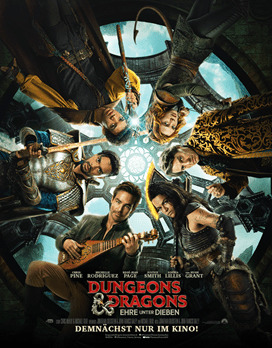
View On WordPress
#Brian Goldner#Chloe Coleman#Chris McKay#Chris Pine#Daisy Head#Denis L. Stewart#Dungeons and Dragons#Dungeons And Dragons: Ehre unter Dieben#Ehre unter Dieben#eOne#Greg Mooradian#Hugh Grant#Jeremy Latcham#John Francis Daley#Jonathan Goldstein#Justice Smith#Michael Gilio#Michelle Rodriguez#Nick Meyer#p.g.a.#Paramount Pictures#Paramount Pictures Germany#Regé-Jean Page#Sophia Lillis#Zev Foreman
7 notes
·
View notes
Text
Hasbro keeps expectations low for the start of 2023, but sees turnaround coming
Hasbro‘s 2023 outlook might feel like déjà vu. At first, anyway.
The toymaker on Thursday announced its fourth-quarter results while issuing conservative guidance for the year, mimicking the modest expectations it had when it entered 2022.
Hasbro is maintaining some optimism though, pointing to key bright spots from releases like Transformers and its growing Wizards of the Coast gaming division,…

View On WordPress
#Breaking News: Earnings#Brian Goldner#Business#Business news#Earnings#Hasbro Inc#Mattel Inc#Retail industry#UBS Group AG
1 note
·
View note
Note
Is there any info on G5’s performance financially? People have been saying it’s been doing poorly since 2021, but there hasn’t really been much evidence. There have been pictures and talk of stores getting rid of it through clearance sales and such, but I find that’s more regional thing; all of stores near me not only still carry MLP, but it rarely goes on clearance, too. To add onto the confusion, Hasbro themselves seems/claims to be confident and investing more money into G5. At the same time, they haven’t mentioned it in an quarterIy report since 2021. I don’t know what think. How do you personally think G5 is doing?
Hasbro has much bigger fish to fry, and they have been cutting costs for basically everything that they can. Wizards of the Coast is now the only part of Hasbro that isn't losing money and Hasbro still laid off lots of that division's staff in December 2023.
Because Hasbro is doing inventory reductions across all their franchises, and because a lot of people have switched to online shopping over the past decade, it's difficult to use anecdotal observations to judge MLP's success. There does seem to be a broad sentiment among MLP toy collectors that the franchise hasn't been doing as well.
The reason that MLP isn't mentioned in Hasbro's investor reports any more is primarily that in 2022 they changed their definition of "franchise brands" and started calling MLP a "portfolio brand" instead, reflecting that it was no longer one of Hasbro's seven biggest brands, but there could be any number of explanations for how that happened.
MLP's no longer been Hasbro's biggest "girl brand" since they got Peppa Pig in 2019.
MLP's growth was primarily because of Friendship Is Magic, and that growth mostly happened before 2015. (Hasbro avoids emphasizing revenue decreases, so that's probably why MLP's revenue wasn't mentioned as a dollar amount after 2015.)
The 2021 movie, My Little Pony: A New Generation, didn't have a properly measurable impact, because its originally-planned theatrical release was cancelled due to the pandemic.
Brian Goldner, who was Hasbro's CEO for about 13 years, died in 2021, and was replaced as CEO by Chris Cocks (yes, that's his real name). It's not clear if Cocks has made any good decisions yet.
It's obvious that both Hasbro and the MLP franchise have seen better days, at least financially, and Hasbro's level of investment into MLP has clearly been decreasing. However, the viral success of G4 isn't something that could be easily replicated, and G4 itself wasn't able to sustain its own viral or financial success. It would probably be fairer to compare G5 to other TV shows/toy lines based on standalone movies than to compare it to G4.
32 notes
·
View notes
Text
The Licensing Letter has an article that includes an interesting interview with Claire Gilchrist, the Vice President of Hasbro.
You may recall that Hasbro's previous CEO, Brian Goldner, tragically died of cancer in 2020, so they have a new CEO, Chris Cocks.
“We are really going through a transformation,” Gilchrist told me, as she was flanked by gigantic Peppa Pigs and Transformer characters at the Hasbro booth.
“Since the arrival of Chris Cocks as our new CEO about 14 months ago, we have undertaken a very significant, deep dive into which brands we should be focused on.
“So we’re really driving what Chris calls a ‘fewer, bigger, better’ strategy. The idea is let’s focus on the smallest set of core brands, which means we can grow them to be much bigger and better brands. And we’ve selected eight brands and we want to make all of them billion dollar US brands.”
The eight core brands are Transformers, My Little Pony, Peppa Pig, Dungeons & Dragons, NERF, Magic: The Gathering, Play-Doh, and Hasbro Gaming / Monopoly.
The idea at Hasbro now is to focus on that smaller number of brands that is clearly getting the most bang for the buck, and to veer away from the brands that are less successful, even while they burn up money and staff time.
Gilchrist says everyone at Hasbro understands that the most important job is to create a strong story around each brand, so the company is not so much selling a product as it is extending aspects of the story line to a fan base.
Very interesting. I have mixed feelings on this. On the one hand, I agree that storytelling is more important than ever in selling toys, especially since kids get out of toys younger than ever (and into digital instead).
On the other hand, how can they build new brands with this strategy?
#Hasbro#Chris Cocks#Claire Gilchrist#My Little Pony#DnD#Transformers#Peppa Pig#NERF#MtG#Play Doh#Monopoly#I just don't think it's a great idea to put all your eggs in one basket#or in this case eight baskets#especially when Hasbro has already shown that they don't understand what will piss off fans#with that whole Dungeons n Dragons kerfuffle
34 notes
·
View notes
Link
3 notes
·
View notes
Text
youtube
A nova grande aposta dos cinemas é a adaptação de um jogo de RPG de muito sucesso, o Dungeons & Dragons: Honra Entre Rebeldes.
Confira a sinopse oficial:
Um ex-harpista que se tornou um ladrão foge da prisão com sua parceira, uma bárbara, e se reúne com um mago sem talento e um druida novato ao time. Com o objetivo de de roubar o golpista traiçoeiro que roubou todo o saque da última missão, o que os colocou atrás das grades, e usou isso para se estabelecer como Lorde de Neverwinter. Acontece que o traidor se aliou com um poderoso Mago Vermelho que tem algo ainda mais sinistro em desenvolvimento.
O elenco conta com Hugh Grant, Chris Pine, Michelle Rodriguez, Regé-Jean Page, Sophia Lillis e Justice Smith. O roteiro fica nas mãos de Jonathan Goldstein e John Francis Daley, que também assumem a direção do projeto. A produção fica com Jeremy Latchan ao lado de Brian Goldner, ambos representando a Hasbro, empresa que detém os direitos do jogo.
Dungeons & Dragons: Honra Entre Rebeldes estreia no dia 13 de abril.
#Paramount#Filme#Cinema#Dungeons&Dragons#Dungeons&DragonHonraEntreRebeldes#D&D#DeD#RPG#Fantasia#Jogo#ForYou#FY#Youtube
2 notes
·
View notes
Text
Toy manufacturers shift focus to sustainability
Mattel and Hasbro increment supportability endeavors
Lately, there has been a shift to manageability and many organizations have experienced harsh criticism for adding to contamination and have been called out for not assuming sufficient social liability. Consequently, Mattel and Hasbro have been intensifying their environmental initiatives.
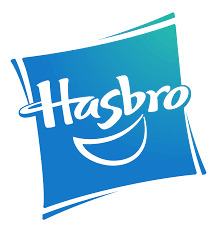
As additional shoppers are turning out to be progressively keen on the effect items they are buying have on the climate, putting vigorously in supportability will permit both Mattel and Hasbro to stretch out their scope to a more extensive objective market.
In January 2020, Mattel announced that its Mega Bloks line would now include three pre-school building sets—Polar Friends, Safari Friends, and Woodland Friends—that will all be constructed from bio-based resins.
The structure sets have Woods Stewardship Board affirmed (FSC) it is completely recyclable to bundle that. In addition, by 2030, Mattel pledged to use only recycled, recyclable, or bio-based plastics in all of its products and packaging.
Mattel outperformed its 2018 objective of progressing to 90% reused material for its paper and wood bundling. Currently, the company uses recycled or FSC-certified paper and wood fiber for 93% of the paper and wood fiber in its products and packaging.
Hasbro declares plans to progressively eliminate plastic from item bundling
Mattel's immediate rival Hasbro declared in 2020 that it wanted to start gradually getting rid of plastic from new item bundling, including plastic components like polybags, flexible groups, shrivel wrap, window sheets and rankle packs. The organization expects to take out essentially all plastic in bundling for new items toward the finish of 2022.
Hasbro director and Chief Brian Goldner said: " The most recent step in our more than a decade-long endeavor to create a more sustainable future for our company and the world is the removal of plastic from our packaging.
Hasbro has been committed to environmental sustainability for a very long time. In 2010, the maker disposed of wire ties and added How2Recycle marking in 2016. In an effort to reduce its reliance on resources that are not renewable, the company announced in 2018 that it would use plant-based bio-polyethylene terephthalate (bioPET) for plastic windows and blister packs. The company made it clear that it will make use of bioPET plastics that are made with 30 percent of the material coming from agricultural by-products.
Hasbro and Mattel join forces with TerraCycle In 2020, Hasbro extended its partnership with TerraCycle by expanding its toy and game recycling program to the UK. Customers will be able to pick up and drop off their Hasbro games and toys at any location in the country thanks to the new program in the UK. TerraCycle will then reuse them into reusable unrefined components, which can be utilized to make new items like outside furnishings, grower and comparable things.
That very year, Mattel sent off the Blocks and Blocks Reusing System and entered an organization with TerraCycle for purchasers to reuse Super Bloks, Mega Construx and other non-electronic Mega toys to make new items in Canada. At no charge, customers, including schools, workplaces, and local area associations, can send in their Mega toys to be reused utilizing a prepaid delivery name. TerraCycle will then dissolve them into hard plastic and remold them to make new items from the reused materials.
0 notes
Text
[HD-Sledujte] Dungeons & Dragons: Honor Among Thieves (2023) celý film Online CZ/SK Dabing
Potulný zpěvák neboli bard Edgin se živí tím, že se svou partou zlodějíčků pomáhá měnit majitele vzácných artefaktů (jednomu ho ukradnou a druhému prodají). Je to práce, při které prakticky neustále strkáte hlavu do oprátky, a ani Edgin nemůže mít věčně kliku. Když se mu podaří šlohnout to, co se nikdy nemělo dostat do nesprávných rukou, a on to navíc do těch rukou dobrovolně vloží, spustí dominový efekt, který může otřást celým světem. Edgin je sice tak trochu zmetek, ale pořád má v sobě kousek cti, a tak se rozhodne napravit, co spískal. Protože však proti němu stojí armáda nelítostných zabijáků, mocných čarodějů a bývalý kamarád Forge Fletcher, potřebuje tým, se kterým by mohl mít aspoň nepatrnou šanci v tomhle úkolu obstát.
| DVD (Blu-ray) | 4K UHD | HD-2080p | HD-720p | SD-480p | MP4 |
▶️ Klikněte zde pro shlédnutí filmu Dungeons & Dragons: Čest zlodějů - Online zdarma v HD
▶️ https://play.sensationfilms.xyz/cs/movie/493529/dungeons-dragons-honor-among-thieves
Vydáno: 2023-03-29
Runtime: 134 minut
Žánr: Akční, Dobrodružný, Fantasy
Hvězdy: Chris Pine, Michelle Rodriguez, Regé-Jean Page, Justice Smith, Sophia Lillis
Režisér: Dan Lebental, Denis L. Stewart, Brian Goldner, John Francis Daley, John Francis Daley
Synopse Dungeons & Dragons: Čest zlodějů (2023)
Téměř 5000 let poté, co byl obdařen všemocnou mocí egyptských bohů - a stejně rychle uvězněn - je Dungeons & Dragons: Čest zlodějů vysvobozen ze svého pozemského hrobu a připraven rozpoutat v moderním světě svou jedinečnou formu spravedlnosti
Hrají Dungeons & Dragons: Čest zlodějů (2023)
Karel Roden, Vica Kerekes, Martin Myšička, Lukáš Latinák, Juraj Kemka, Štepánka Fingerhutová, Jaroslav Dušek, Ester Geislerová, Vlado Černý, Anna Šišková, Jiří Dvořák, Tomáš Měcháček, Martin Pechlát, Eva Leimbergerová, Zdeněk Maryška, Tomáš Matonoha, Eva Landlová, Zuzana Kraváriková, Oliver Oswald, Daniel Olbrychski, Marta Żmuda-Trzebiatowska, Magdalena Nieć, Przemysław Kapsa, Michal Maléř, Nico Santini.
Datum vydání Dungeons & Dragons: Čest zlodějů (2023)
Dungeons & Dragons: Čest zlodějů (2023) má premiéru v kinech od 25.08.2023 a o den později je výše uvedený odkaz dostupný také na streamovacích službách.
Následuje vysvětlení filmu Dungeons & Dragons: Čest zlodějů (2023) na našem webu z kvality a důležitých věcí na našem webu, které by vás mohly zajímat o přístup na naše stránky.
Kde můžete zhlédnout film Dungeons & Dragons: Čest zlodějů (2023)?
Odpověď je na našich stránkách, protože naše stránky nabízejí širokou škálu filmů, dramat a televizních seriálů, nejnovějších i starších. Existuje mnoho různých typů filmových žánrů, včetně akce, romantiky, hororu, thrilleru, sci-fi, anime, dramatu a televizních seriálů. Takže pokud máte zájem, klikněte na odkaz výše.
Jaká je kvalita filmu Dungeons & Dragons: Čest zlodějů (2023) a co je k dispozici?
Poskytujeme nejlepší kvalitu obrazu a zvuku. K dispozici je také kvalita videa včetně 4K Ultra HD, HD 1080p, HD 720p, HD 420p a Mp4. Dostupné také s českými titulky a českým dabingem. K dispozici také v globálním jazyce, konkrétně v angličtině. Vyberete si pouze podle své představy, my se o vše postaráme.
Jakými prostředky a nástroji můžete přistupovat na naše stránky?
Pokud chcete vstoupit na naše stránky, je to velmi snadné, stačí držet mobil a vyhledat jej ve vyhledávání Google. Na naše stránky lze přistupovat také na telefonech Android, iPhonech, MAC, počítačích, laptopech, noteboocích, iPadech, PS 5 a Smart TV, pokud máte internetovou síť, to je nejdůležitější požadavek.
Děkujeme za návštěvu
Děkujeme, že jste navštívili naše stránky a přečetli si naše články. Doufáme, že se vám bude líbit film Dungeons & Dragons: Čest zlodějů (2023), který vám nabízíme. Pokud se vám naše stránky líbí, dejte jim lajk a řekněte svým přátelům, aby se na naše stránky dostali. Doufáme, že vše může snížit vaši nudu a stres po dlouhém dni v práci.
Dungeons & Dragons: Čest zlodějů (2023) celý film Český
Dungeons & Dragons: Čest zlodějů (2023) Filmové premiéry
Dungeons & Dragons: Čest zlodějů (2023) celý film Česka
Dungeons & Dragons: Čest zlodějů (2023) sleduj filmy
Dungeons & Dragons: Čest zlodějů (2023) online cz titulky
Dungeons & Dragons: Čest zlodějů (2023) premiéra
Dungeons & Dragons: Čest zlodějů (2023) online cz
Dungeons & Dragons: Čest zlodějů (2023) online cz dabing
Dungeons & Dragons: Čest zlodějů (2023) Celý Film
Dungeons & Dragons: Čest zlodějů (2023) Titulky
Dungeons & Dragons: Čest zlodějů (2023) DVD filmy
Dungeons & Dragons: Čest zlodějů (2023) Blu-ray filmy
Dungeons & Dragons: Čest zlodějů (2023) online cely film CZ
Dungeons & Dragons: Čest zlodějů (2023) online
Dungeons & Dragons: Čest zlodějů (2023) online film cz
Dungeons & Dragons: Čest zlodějů (2023) online ke shlédnutí
Dungeons & Dragons: Čest zlodějů (2023) celý film zdarma ke shlédnutí
Dungeons & Dragons: Čest zlodějů (2023) celý film cz dabing
Dungeons & Dragons: Čest zlodějů (2023) online cz titulky
Dungeons & Dragons: Čest zlodějů (2023) celý film
Dungeons & Dragons: Čest zlodějů (2023) online sk
Dungeons & Dragons: Čest zlodějů (2023) Plný film sk dabing
Jaká kvalita videa je k dispozici v tomto filmu Dungeons & Dragons: Čest zlodějů (2023)?
Nejlepší kvalita streamovaného videa při sledování filmů je nejdůležitější. Chcete -li získat pohodlí při sledování filmů a získat čistou kvalitu zvuku. existuje několik kvalit, které poskytujeme, počínaje kvalitou 4K Ultra Hd, HD 2080p, HD 720p, HD 420p a nakonec poskytujeme také kvalitu Mp4. Tyto možnosti vám usnadní výběr nejlepší požadované kvality videa.
Proč byste se měli dívat na nejnovější film Dungeons & Dragons: Čest zlodějů (2023)?
Film Dungeons & Dragons: Čest zlodějů (2023) je film, který je právě sledován. Proč je to tak? protože vám promítneme film Dungeons & Dragons: Čest zlodějů (2023) online zdarma a s cz a sk dabingem. poskytujeme také filmy Dungeons & Dragons: Čest zlodějů (2023) zdarma v HD kvalitě. Podívejte se také na seznam nejlepších nejnovějších filmů na našem webu z kategorie Oblíbené filmy online zdarma.
Kde se můžete podívat na celý film Dungeons & Dragons: Čest zlodějů (2023)?
V současné době je k dispozici mnoho stránek, kde je možné sledovat celé filmy online. Můžeme snadno sledovat filmy, které se nám líbí. Filmy Dungeons & Dragons: Čest zlodějů (2023) můžete sledovat kdykoli odkudkoli, včetně České republiky. Na našich stránkách Všechny filmy mají české, slovenské, anglické titulky a další jazyky. Sledujte filmy Dungeons & Dragons: Čest zlodějů (2023) zdarma online na našem webu. Pokud se zaregistrujete hned, získáte první dny zdarma videa a filmy Dungeons & Dragons: Čest zlodějů (2023), které si můžete přehrát, kdykoli budete online. Sledujte filmy Dungeons & Dragons: Čest zlodějů (2023) z online nabídky nebo streamujte na chytré televizi, počítači, Macu, mobilu, tabletu a androidu.
Proč byste měli sledovat na našich stránkách?
Náš web nabízí celou řadu filmů, nejnovější i staré. Film můžete sledovat snadno a zdarma bez registrace. Pokud jste zmatení z filmů, které jsou právě sledovány, stačí se podívat po oblíbených filmech na našem webu. Nabízíme mnoho filmů různých žánrů od akce, komedie, sci-fi, hororů, kreslených filmů, dramat, televizních filmových seriálů a dalších. Zde je důvod, proč byste měli sledovat filmy na našem webu:
Filmy jsou vždy aktualizovány
Nové a staré filmy jsou také k dispozici na našem webu.
Můžete si také vybrat více v kvalitě HD filmu.
Dostupné v češtině a na Slovensku a v dalších zemích.
Dobrá kvalita obrazu a čistý zvuk.
Stream můžete sledovat nebo si jej stáhnout.
Streamování a stahování je možné na telefonech Android, počítačích PC, Mac, iPhonech, tabletech a chytrých televizích.
Snadno a bez registrace.
Lze sledovat zdarma.
To jsou některé z výhod, pokud sledujete naše stránky. Stačí kliknout na výše uvedený odkaz. Naštěstí sledováním našich stránek můžete být s našimi službami pobaveni a spokojeni.
1 note
·
View note
Photo




Fonlad 2022 - 17th International Video Art and Performance Festival, Coimbra, Portugal curated by José Vieira
Selected videos:
with my new video work ‘NOSTALGIA’ 2022, UK, 7:30
VIDEOS:
Wezi (Breathe)”, Abdoul-Ganiou Dermani, Togo/ Germany, 2022, 2:55
“[SELF]INSERTIONS: when the [noisy] silence became louder than skin”, António Olaio + José Cruzio, Portugal, 2021, 5:2'
“Territorial Poetics (II: Unfoldin)”, Bill Psarras, Greece, 2019, 25:42 “ID”, Izabella Retkowska, Germany, 2020, 2:00
“Death Archives No. 6”, Brian Ratigan, USA, 2021, 2:30
“Fear”, Eija Temisevä, Finland, 2022, 2:56
“THIS IS NOT YOUR TERRITORY”, Fenia Kotsopoulou, GR/UK, 2022, 24:30
“Persona Non Grata”, Fran Orallo, Scotland, 2022, 2:00
“Too Big Drawing”, Genadzi Buto, Belarus, 2021, 5:13
“Future perfect”, Ian Gibbins, Australia, 2019, 4:32
“La tormenta”, Isabel Pérez del Pulgar, France, 2022, 8:23
“Vaches:Insufflation”, Jean-Michel Rolland, France, 2021, 2:16
“Cheiro sacana”, João Meirinhos, Portugal, 2020, 2:00
“Distortion”, Jovana Plavsic, Serbia, 2021, 2:55
“ENCYCLIA”, Khireddine khaldoun, Algeria, 2020, 4:33
“You exist only in me”, Mahedi Anjuman, USA, 2022, 1:49
“WANDEL”, Maria Korporal, Germany, 2022, 3:38
“Infinity”, Milan Zulic, Switzerland, 2021, 6:10
“Nostalgia”, Monika K. Adler, United Kingdom, 2022, 7:30
“LIMBUS”, Nikita Vlasov, Ukraine, 2019, 9'22"
“Piko and Brunatny”, Przemek Węgrzyn, Poland, 2021, 12:30
“Travel Notebooks: Rome – Italy”, Silvia De Gennaro, Italy, 2021, 4:49
“STRING THEORY”, Simon Le Boggit, United Kingdom, 2021, 5:05
“A half-dreamed memory”, Úrsula San Cristóbal, Spain, 2021, 6:25
“Swimming Lesson”, Vardit Goldner, Israel, 2021, 5:21
0 notes
Text
Bumblebee Movie Trailer #3 Streamed
Comicbook recently updated their official Youtube channel with a new trailer for the Bumblebee movie. The latest trailer takes another look at the human cast including some new scenes featuring Burns (John Cena). The trailer also takes another look at some of the Decepticon battles featured in the film.
The official movie Bumblebee
View On WordPress
#Abby Quinn#Angela Bassett#Barricade#Brian Goldner#Bumblebee#Bumblebee Spin-Off#Burns#Charlie#Charlie Watson#Christina Hodson#Darkon633#David Sobolov#Dropkick#Film Trailer#Gracie Dzienny#Hailee Steinfeld#Hasbro#Hero Club#Jason Drucker#Jess Harnell#Jorge Lendeborg Jr.#Justin Theroux#Kenneth Choi#Lorenzo di Bonaventura#Mark Vahradian. Chris Brigham#Michael Bay#MTV#Pamela Adlon#Paramount Pictures#Rachel Crow
2 notes
·
View notes
Text
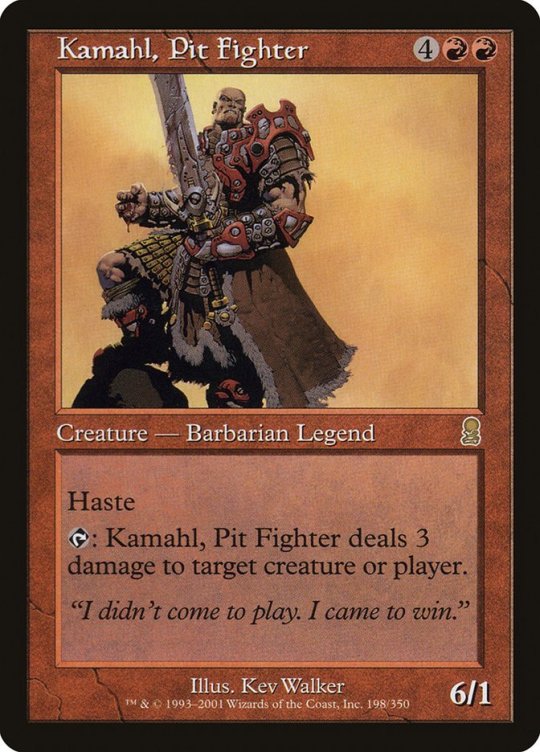
Dear Cedric Phillips and GerryT,
Having listened with great interest to the “Change Worth Fighting For” episode of the Cedric Phillips Podcast, I felt compelled to reply. On that episode, you wondered why professional Magic players have seen their fortunes decline so precipitously over the past ten years, and what they can now do to improve their situation. I believe I can help explain this reversal of fortune, and offer some relevant advice. What follows is a little on the long side, and perhaps a little depressing, but I hope you will nonetheless find it edifying. If you like, it would be my pleasure to discuss these matters further.
About me, briefly: I’ve played Magic on and off since the release of Fallen Empires, and am a regular consumer of Magic content. Among other things, I’ve watched every Pro Tour since PT Los Angeles (October 2005); I’ve watched countless LSV draft videos and Twitch streams; I’ve listened to hundreds of episodes of Limited Resources, Mark Rosewater’s Drive to Work podcast, and various other Magic podcasts; and I’ve read just about every column that Mark Rosewater has ever written. At the same time, I’m also an English Ph.D. and author whose research interests include the economics of fantasy artworks—for instance, my most recent book, I Find Your Lack of Faith Disturbing: Star Wars and the Triumph of Geek Culture, tells the story of how geek culture went from being an underground phenomenon to a mainstream demographic. Given that, I tend to view Magic from a financial perspective—by which I don’t mean living the dream of playing on the Pro Tour, or making a fortune by speculating on Magic cards, but rather trying to understand why Wizards of the Coast makes the economic decisions that it does.
I am hardly a Wizards insider. But I believe that my research into Magic’s financial history, coupled with my broader knowledge of fantasy franchises, enables me to understand why Wizards has chosen over the past decade to disinvest in its Pros, even if that decision appears baffling and counterintuitive to those players. For years now I’ve watched Pros complain about their situation, wondering why, if Magic is doing so great, then why are the Pros suffering? Shouldn’t their fortunes rise and fall with Wizards’? As you yourselves put it on your podcast, “the stars sell the cards,” by which logic if Wizards wants to succeed, then it needs to build stars. Just like how the NBA promotes LeBron James, and not simply “hoops,” Wizards should promote, say, Reid Duke, and not simply “Siege Rhino.” By that same logic, if Wizards doesn’t build stars, then it won’t sell cards, and everyone’s fortune will decline.
I sympathize with your argument. I love watching professional Magic, and once attended a Pro Tour as press just so I could blog about it. But at the same time, I think that your logic is mistaken, and I suspect that your arguments will fail to impress Wizards. Because while it appears to you that Wizards is behaving irrationally, or foolishly, the fact remains that the company long ago settled on a business plan that involves investing less in its Pro players, not more. This is because Wizards has already tried the strategy that you cite—promoting Magic by championing in its Pros—only to find that it didn’t work out that all that well. Indeed, it proved nearly catastrophic. And because of that, as well as for other reasons, Wizards has spent the past ten years rebranding Magic as something other than a competitive tournament game.
Let’s review the relevant history. In 1996, Skaff Elias, Magic’s first Brand Manager, created the Pro Tour in order to promote Magic, and for the next twelve years, Wizards invested heavily in competitive Magic. Wizards ditched Magic’s original whimsical fantasy flavor (not to mention nearly all of the game’s female artists)…
…refocusing the game around dueling mage-punk badasses.
In September 2005, Magic’s creative lead, Matt Cavotta, described the game’s flavor as follows:
Magic is a head-to-head battle of wits in which two spellcasting warriors fight to the death with magic and armies of bad-ass creatures. Every card illustration should work in that context: active, aggressive, cool, wicked, “edgy.” The word “magepunk” works for us. Remember, your audience is BOYS 14 and up.
There were even two blocks centered around pit fighting.
In the Pro Player Era, Magic became a game about winning and dominating, as Wizards targeted competitive young men, selling them dreams of fame and glory, as well as the chance to “play the game, see the world.” The greatest dream was winning the Pro Tour, which Wizards presented not only as the pinnacle of Magic, but as a recruitment pipeline, using it to hire players like Randy Buehler and Aaron Forsythe. Small wonder then that, during this time, Wizards catered heavily to the Pros by creating Magic Online, the Magic Invitational, the Pro Players Club, and the Pro Tour Hall of Fame, and by making the Pro Tour Player Cards, which went inside actual packs.
Wizards also made Magic the way Pros tend to like it: grindy and combo-heavy, chock full of abstract mechanics and cards that skilled players could abuse to gain incremental advantage. For a dozen years, the Pros were Magic’s foremost ambassadors, and the stars did in fact sell the cards.
The problem is that they didn’t sell that many. By catering so heavily to Pros and Pro-wannabes, Wizards steadily alienated its casual players and much of its female fan base. (Scroll, for instance, through these photos, taken at Worlds 2008.) At first, Wizards didn’t know it was losing these customers. On an early episode of his Drive to Work podcast, Mark Rosewater explains that Wizards began calling those disappearing players “the Invisibles,” a shorthand for “people who play who don’t participate in organized play.” Take a moment to let that terminology sink in: during the Pro Player Era, Wizards was so invested in Magic as a competitive game that it didn’t even know that non-competitive players existed, and as such apparently had no good means of tracking their preferences or spending habits. But by 2008, Wizards could no longer deny that its business strategy wasn’t working. Magic was in financial crisis, with sales declining despite the fact that tournament attendance was good and the Pros loved perplexingly complex blocks like Ravnica, Time Spiral, Lorwyn, Shadowmoor, and Alara.
The Pro Player Era came to a rather abrupt end in 2008. That year, Hasbro got a new CEO, Brian Goldner, who appointed a new CEO to Wizards, a man named Greg Leeds. Leeds’ first order of business upon arrival was to clean house, and get Magic back on stable financial footing. Leeds fired several employees (including Randy Buehler), and stripped Wizards back to its core products: Magic and D&D. All other Wizards products—boondoggles like Hecatomb, DreamBlade, and Gleemax—went by the wayside.
Leeds could see that Wizards was spending too much on enfranchised, competitive gamers even as it failed to attract and acquire new players. Part of the problem was that Magic had grown too abstract, too daunting, too mind-meltingly complex for newcomers to grasp. Under Leeds’ direction, Wizards took steps to reverse course. The company partnered with Stainless Games to create the new-player-friendly video game Duels of the Planeswalkers, which launched in June 2009 and proved an immediate success. Wizards also fundamentally changed how Magic was played. Prior to 2008, Magic was primarily a game about mana, in which strategy revolved around players concealing what they were capable of doing on any given turn, which is why control and combo strategies dominated. After 2008, Magic became a game about creature combat, as Wizards nerfed the control and combo strategies that Pros adored, but that infuriated casual players. Wizards also simplified the game’s rules and implemented “New World Order” in an effort to curtail “complexity creep.” Ever since then, Mark Rosewater has cited “complexity” as the greatest threat to Magic’s survival, and Wizards has continued making changes to simplify the game, most recently scaling back the number of new mechanics in each set, and eliminating the block structure. (See Mark Rosewater’s “State of Design” columns for 2016 and 2017.)
The Pros at the time grumbled about the way that Magic was changing, but by and large they accepted what Wizards was doing, reasoning that if and when the game’s fortunes improved, their fortunes would as well—what you, GerryT, called the “trickle-down” theory of Magic. The Pros also accepted that, for the time being at least, sacrifices were needed, so they sucked it up when Wizards reduced its spending on them. The Magic Invitational and the Pro Tour Player Cards disappeared, even as payouts and player perks decreased, as did the number of Pro Tours. The remaining PTs were closed and scaled back, and synced to the latest set releases, no longer taking their names from the cities hosting them. It may not have been obvious at the time, but Wizards was abandoning the concept of “play the game, see the world,” and so it was that in February 2012, Pros attended Pro Tour Dark Ascension, and not the third Pro Tour Honolulu (!). It would seem that, in order to justify its continued existence, the Pro Tour needed to come across less like a vacation for a select few, and more like an ad for the latest set.
But the changes to Magic didn’t stop there. Here it will help to understand how Brian Goldner became CEO of Hasbro, and how he thinks about Magic—how he thinks about all of the company’s top brands. Goldner joined Hasbro in 2000 after working for Haim Saban, the man behind the Power Rangers franchise, and he rose to power by applying Saban’s brand strategy to the Transformers line of toys, transforming it, so to speak, into a massive movie-centric franchise that’s still going strong. (Bumblebee is due out in theaters soon.) Since becoming CEO, Goldner has taken the same approach to a number of Hasbro brands, making movies out of G.I. Joe, Ouija, Battleship, and My Little Pony, and attempting to make films out of Monopoly and Magic. In this way, Goldner has spent the past ten years moving Hasbro away from being a company that acquires licenses to make toys for other brands (such as Star Wars), and more toward becoming an entertainment company that promotes its own brands through movies, TV shows, and other media. (The company recently tried to purchase DreamWorks Animation.)
The way Goldner sees it, consumers aren’t looking to buy toys or Magic cards or physical products per se, but rather emotionally resonant experiences. By this logic, Transformers fans (for example) are looking for all kinds of opportunities to express their love of Transformers, from buying toys and watching movies to putting Autobot emblems on their cars and getting Decepticon tattoos. Or even doing random things like buying bags of shortbread cookies adorned with illustrations of Optimus Prime and Bumblebee.

The trick is to give fans limitless opportunities to express their identity as fans, and thereby experience the joy their fandom brings them. In that way, they bond emotionally with the brand, coming to regard it as an essential part of their life.
Goldner transmitted this philosophy to Wizards via Greg Leeds, which is why, post-2008, Wizards became obsessed with creating emotionally resonant experiences for its players. Aaron Forsythe designed Magic 2010 in order to recapture the resonant flavor of Alpha, and Mark Rosewater designed Innistrad in order to make players feel (pleasurably) afraid. Rosewater even reconceived of his job as designing not Magic cards, but emotional experiences for players. As he put it on a 2013 episode of Drive to Work:
The last couple years […] I’ve been making sure that when I make a design, that I have an emotion that I am getting out of you. That I, the game player, am going, ‘What experience am I trying to create?’ And I want to make sure that I’m making gameplay that has that emotional response.
Goldner also encouraged Wizards to create intellectual property for Magic—characters and plot lines that could be exploited across other media. Wizards responded by rebranding Magic around the Planeswalkers, a growing cast of recurring characters that can be represented not only in card form …
… but as Funko Pop figures …
… and as pieces in a board game …

… as well as characters in movies and TV shows and theme parks and Broadway musicals and—well, anything Wizards wants, really, including media and products yet to be invented. (Here, other franchises, like Harry Potter, the MCU, Star Wars, and Avatar, have been leading the way for a while, and Wizards is scrambling to catch up.) This ambition is what led Brian Goldner to claim during Hasbro’s Fourth Quarter 2014 Earnings Conference Call that Magic is “a storytelling brand first and foremost,” specifying that “engagement with characters is critical,” and it’s why Wizards announced soon thereafter that it would be doubling down on promoting the game’s story, using the Magic website and “story spotlight” cards to ensure that players can easily follow what’s happening with Jace, Liliana, Nicol Bolas, and all the rest.
As you and I know, these changes proved wildly successful: between 2009 and 2015, Magic acquired new players at a rapid clip, topping out at a reported 20 million. But as you and I also know, even though Magic financially recovered, the Magic Pros did not. Instead, in 2018, the Pro players’ condition is more precarious than ever, despite the fact that Magic is at or near the height of its popularity. Which is to say that Magic’s recent success has not, in fact, benefited the Pros. Rather, it has come at their expense.
The reason for this is relatively simple, although it might be difficult to see if one is too close to the game, and especially if one is too close to professional play. While Magic has grown tremendously over the past decade, the vast majority of the people playing today aren’t Pros, or even wannabe Pros. Instead, the past ten years have seen the “Invisibles”—casual, non-competitive players—take over. And while it’s true, as you said in your podcast, that people connect with other people, I fear you’re kidding yourselves if you think that most current Magic players are looking to connect with Magic Pros. Casual players and competitive gamers want fundamentally different things from Magic. Competitive Magic players want to test themselves, to participate in the highest levels of competition, where they strategically outplay the best opponents in the world. Like Kamahl, Pit Fighter, they came not to play, but to win, wanting the same thing Bob Maher wanted: “Greatness, at any cost.”
Casual players don’t want that, not at all. So while the Pro Tour remains, for professional players, the pinnacle of Magic, it’s a total bore for casual players (assuming they even know it exists). For one thing, as everyone knows, it makes a decidedly poor spectator sport: there’s tons of down time, and when players finally do sit down to battle, viewers can barely make out what’s happening, let alone read which cards are in play.

Beyond that, the game play itself is frequently anticlimactic, with a large percentage of games being won or lost due to mana issues. (Witness LSV losing the very last game of PT Guilds of Ravnica after mulling to four.)
It’s easy to forget, after learning something, what it was like not to know it, and competitive Magic players often forget how much knowledge is required in order to watch and enjoy the Pro Tour. Not only does one need to know all of the relevant cards and decks in a given format, but one has to understand top-level strategies, as well as issues like priority, triggers, and so on. Casual players don’t understand these things, and they don’t want to understand them. In March 2017, the Limited Resources podcast spent ninety minutes providing a detailed overview of Magic Online and “all of the phases and steps of Magic.” Casual players don’t want to listen to podcasts like that; nor do they want to learn how to set stops on Magic Online, or how to even start playing Magic Online.

Nor do they want to memorize draft pick orders, or feel like they have to know every combat trick in the format in order to play. They don’t want to have to do tons of homework just to play Magic. As such, these players (happily) lack the knowledge and proclivity required to appreciate the things that Pros obsess over, like in-depth analyses of strategy, or three-hour-long video series discussing the Top 100 Magic Cards of All Time, or even longer set reviews that scrutinize every card in a new set with an eye toward limited play. They don’t want to be Pros.
You can see this in the fact that casual players prefer playing different formats than the Pros do, to the point where the two groups are practically playing different games. Whereas Pros want to do Rochester drafts (with Beta packs!) and brew Standard decks and play Legacy and Vintage and Vintage cube, casual players gravitate toward formats like Commander. Pros famously dislike that multiplayer format due to the outsize role that politics play in determining who wins and who loses. But casual players are less invested in whether they win or lose, being more concerned with playing a fun, social game with people like themselves—people who express themselves not through crushing their opponents, but through the Guild identities, Commanders, Planeswalkers, and tribes. These players couldn’t care less about solving the metagame; since they lack the luxury of being sponsored by card shops, they can’t easily swap between decks, or afford to do dozens of drafts. Instead of playing with the best cards in the format, they play with the cards they happen to own, and if they do invest in a deck, it’s usually one that suits their personality, and that they can go on to play year in and year out, tinkering with over time.
Because these players are numerous, Wizards has spent the past decade shifting resources away from the Pro players and toward the larger, more casual demographic, rebranding Magic not as a cut-throat competitive game, but more as a fun play experience—hence the onslaught of casual-friendly products such as Archenemy, Conspiracy, Commander decks, Unstable, the full-art promos for Ultimate Masters, and Magic Arena. The Magic brand no longer revolves around winning games of Magic; indeed, it no longer necessarily involves playing games of Magic. Since 2010, Magic Prereleases have routinely featured events like unlocking the Helvault (Scars of Mirrodin), picking a side in the Mirran-Phyrexian war (Mirrodin Besieged), choosing a clan (Khans of Tarkir), and puzzling one’s way out of the “Stitcher’s Lab” escape room (Shadows over Innistrad)—i.e., ways of getting players to engage with the Magic brand beyond building decks and playing matches. Rather than being cute side events, these types of activities are increasingly the central attraction. Two months ago, Wizards announced its intention to rebrand Grands Prix as “MagicFest,” or “weekends about so much more than just the main event,” including “side events, artist booths, cosplay, panels, [and] spellslinging.” (Pro Tours will be held at MagicFests.) Today’s Magic players are looking for more than just tournaments, which means that tournaments alone aren’t enough to sell and promote the Magic brand. (Wizards can no longer justify paying for standalone GPs and PTs.)
The shoe is now clearly on the other foot. Gradually, steadily, over the past ten years, the Pro players have traded places with the Invisibles, receding from view. At the Magic Subreddit, the top posts concern topics like Magic story, Magic art, card alters, and cosplay; rarely do they involve Magic tournaments. One week after your podcast came out, the “Grand Prix Montreal, Grand Prix Mexico City, and SCG Open Columbus Discussion Megathread!” pinned to the top of the Magic Subreddit received a whopping fifty-three up-votes, and forty-four comments. As it happened, more people were interested in the fact that the artwork for Expropriate features True-Name Nemesis. Small wonder then that the Mothership’s front page routinely ignores GPs and other organized play events, preferring to use that real estate to promote Guilds of Ravnica, Commander 2018, and Magic Arena.
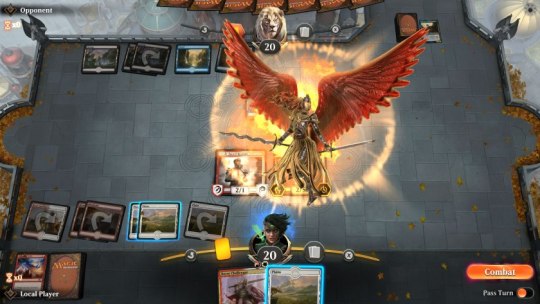
Speaking of which: surely it won’t be long before Wizards moves the Pro Tour to Magic Arena, or replaces the Pro Tour outright with Arena-based tournaments. Already the company is paying celebrity gamers like Day9 and Trump to stream Arena—entertaining personalities who may not be the most skilled Magic players, but who are capable of drawing thousands of eyeballs.

Of course, it’s true that casual players admire certain Magic Pros, such as LSV. But casual players don’t like Luis Scott-Vargas just because he’s one of the greatest players of all time; they like him, and subscribe to the Divination, because LSV is funny and charismatic and loves to durdle and tease Paul Cheon. That’s why they tune in to his Twitch channel even when he does things like sign tokens for GP Las Vegas, choosing to vicariously hang out with him. LSV doesn’t make his casual fans feel stupid; he makes them feel smarter, and as though they’re winning and losing alongside him. In this regard, he’s unlike most Magic Pros, who typically come across to casual players as cold, unfeeling jerks who make Magic unfun by quickly defeating them, then berating them for making bad plays with bad cards and bad decks (or for picking foil Tarmogoyfs in draft).
That is why, in 2018, Pro players are no longer the public face of Magic, having been supplanted by the Planeswalkers. If 1996–2008 was the Pro Player Era, then 2008–present has been the Planeswalker Era. More Magic players today fantasize about being Kiora or Chandra than they do being Magic Pros, which is why Wizards has taken pains to diversify that lineup of characters. The casual player base has always been more diverse than the overwhelmingly male Pro scene, and it’s presumably growing more diverse by the day. (Note how many women and female characters Wizards has chosen to depict on the current Magic homepage.)

And the Planeswalkers offer benefits beyond that. Wizards doesn’t have to pay those characters anything, or fly them anywhere, or put up with them complaining about Magic, or doing things like sitting out Worlds in protest. (Sorry, GerryT.)
Mind you, none of this is to say that Wizards no longer cares about the Pros. I imagine the company is delighted to have such a dedicated group of players that spends all of its time promoting Magic for free by making Magic videos and podcasts—not to mention purchasing Magic cards. And no doubt Pros and Pro-wannabes are still responsible for a significant portion of the game’s revenue. But those players no longer appear to be Magic’s primary audience. As such, Wizards has spent the past decade adjusting its spending on those players to a more appropriate level, valuing them for what they’re really worth, as opposed to what Wizards thought they were worth c. 2006.
Since I don’t want to end this letter on too pessimistic a note, I’ll offer a few hopeful words of advice. Please keep in mind that I am not a Magic Pro. But if I were, I would try to take more of my well-being into my own hands. Fifteen years ago, when Wizards was ignoring the “Invisibles,” some of those players created Elder Dragon Highlander, which went on to become Commander, now the most popular Magic format (and which is still maintained by its own independent rules committee). Today, if the Pros feel slighted by Wizards, then they should make the version of Magic they want to exist—their own tournament scene, their own formats, their own banned and restricted lists, their own Hall of Fame—rather than relying on Wizards to maintain institutions it created in a totally different era, when the company’s priorities were different from what they are now. The Pros should also unionize, or enter into some other collective partnership, and make their stand together, collectively working to attract sponsors and streaming deals. More than anything else, the Pros should recognize that their fortunes won’t necessarily rise or fall with Wizards’, or with Magic’s. But the Pros will certainly rise and fall with each other.
Best wishes,
Adam
An open letter to Cedric Phillips, Gerry Thompson, and the Pro Magic community at large Dear Cedric Phillips and GerryT, Having listened with great interest to the “Change Worth Fighting For…
#Brian Goldner#Cedric Phillips#cosplay#geek culture#Gerry Thompson#Greg Leeds#Hasbro#Luis Scott-Vargas#Magic the Gathering#Mark Rosewater#Matt Cavotta#MTG#Planeswalkers#Randy Buehler#Skaff Elias#Transformers#Wizards of the Coast
1 note
·
View note
Text
Snake Eyes: G.I. Joe Origins
Snake Eyes: G.I. Joe Origins
Story: Der junge Snake Eyes, ein beharrlicher Einzelgänger, wird in den ehrwürdigen japanischen Arashikage-Clan aufgenommen, nachdem er das Leben des designierten Thronfolgers gerettet hat. Nach seiner Ankunft in Japan lehren ihn die Arashikage die Kunst der Ninja und bieten ihm gleichzeitig, wonach er sich schon immer gesehnt hat: ein Zuhause. Doch eines Tages werden Geheimnisse aus seiner…

View On WordPress
#Abenteuer#Action#Andrew Koji#Anna Waterhouse#Arashikage-Clan#Autounfall#Bojan Bazelli#Brian Goldner#Einzelgänger#Eri Ishida#Erik Howsam#Evan Spiliotopoulos#Fantasy#G.I. Joe#G.I. Joe Origins#Gefahr#Geheimdienst#Geheimnis#Gejagte#Haruka Abe#Heimat#Henry Golding#Iko Uwais#Jagd#Jäger#Japan#Jennifer Madeloff#Joe Shrapnel#Kampf#Lorenzo di Bonaventura
1 note
·
View note
Video
youtube
Hitler is informed that Brian Goldner has died
0 notes
Text
Just saw that Brian Goldner, CEO of Hasbro, died of cancer. (October 12, 2021.) Very sad, he was only 58.
He’d worked at Hasbro since 2000, starting out in the Tiger Electronics handheld games division.
18 notes
·
View notes
Link
1 note
·
View note
Photo
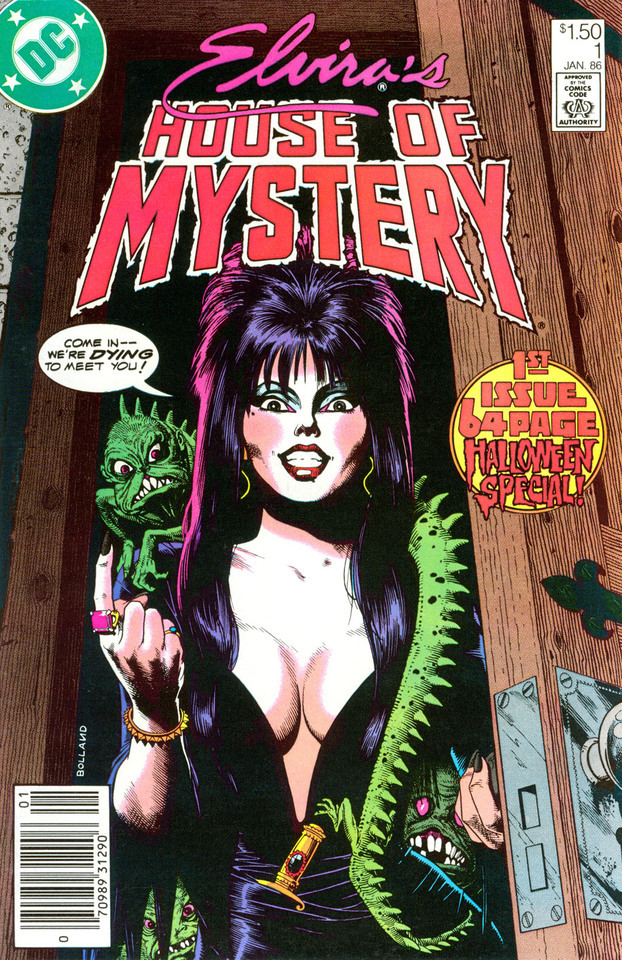
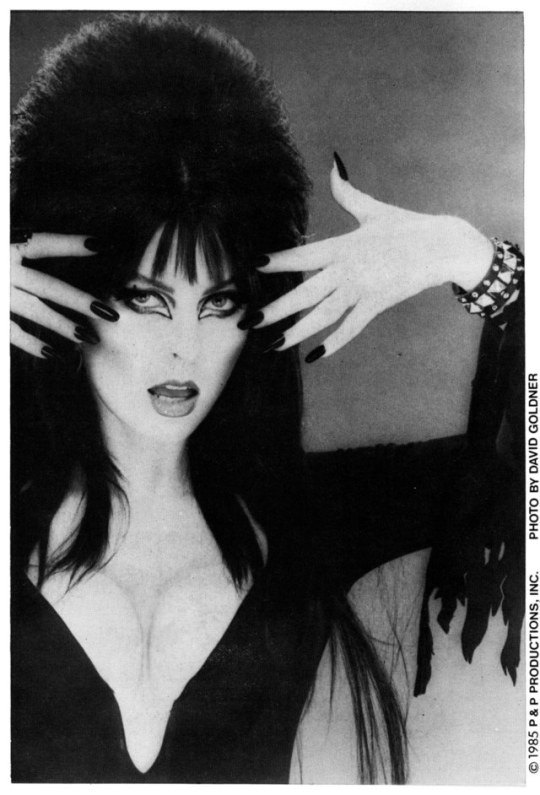

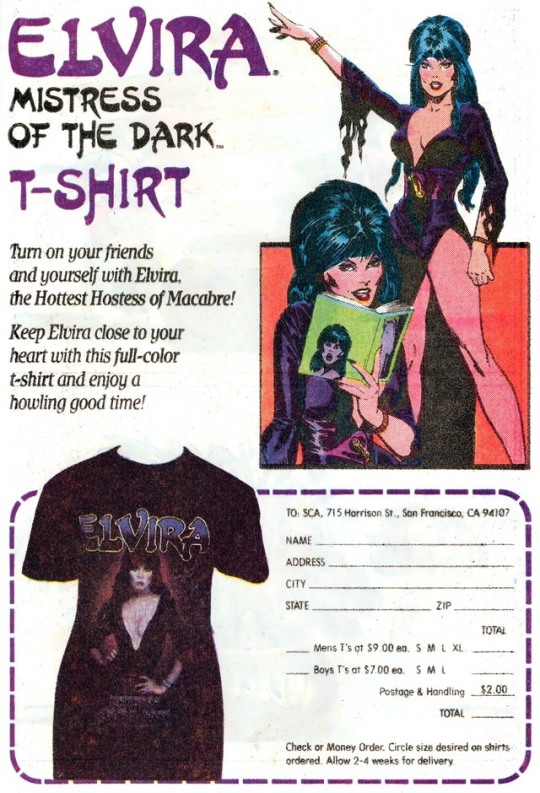
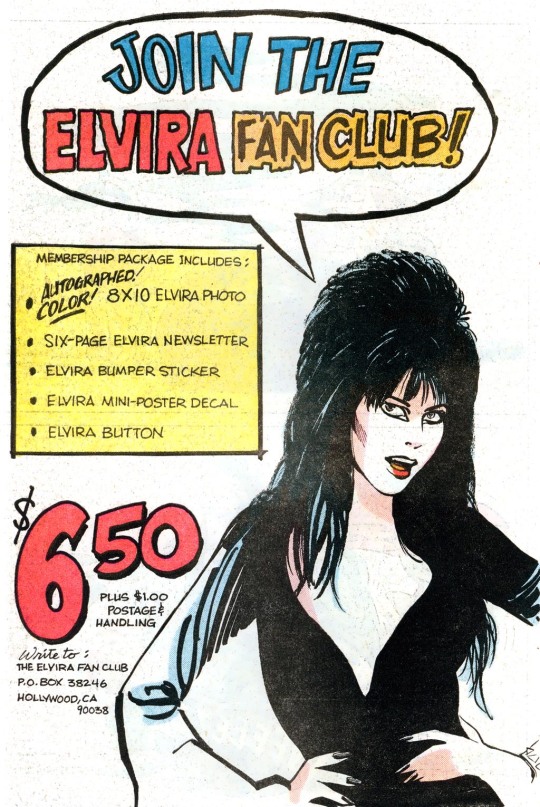
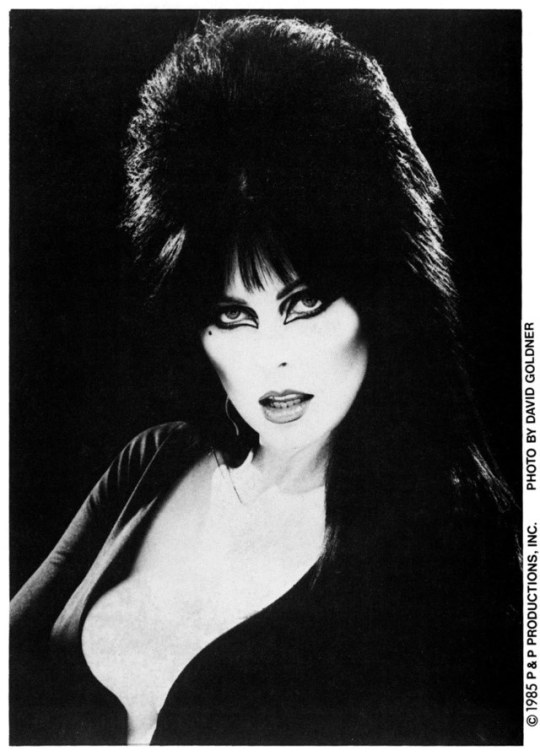

Elvira’s House Of Mystery #01
(Cover)
Pencils: Brian Bolland
Inks: Brian Bolland
DC (Jan1986)
(Story Page)
Script: Joey Cavalieri
Pencils: Ron Wagner
Inks: Bob Oksner
Colors: Elizabeth Bérubé
Letters: Kurt Hathaway
(Photos)
Elvira (Cassandra Peterson)
Photography by David Goldner
#Vintage#Art#Illustration#Design#Comics#DC#DC Comics#Elviras House Of Mystery#House Of Mystery#Horror#Horror Comics#Elvira Mistress Of The Dark#Elvira#Cassandra Peterson#David Goldner#Brian Bolland#Joey Cavalier#Ron Wagner#Bob Oksner#Elizabeth Bérubé#Kurt Hathaway#Ads#Advertising#1986#1980s#80s
40 notes
·
View notes